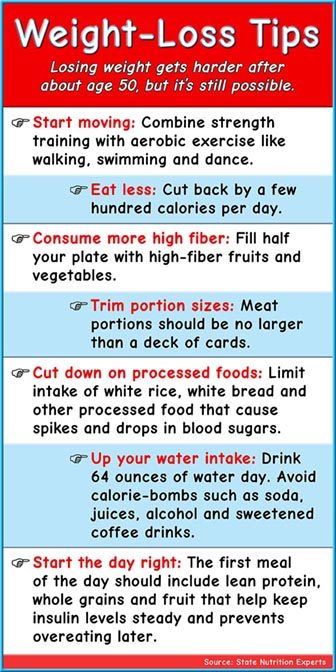Last fall, Sharon Boland was worried she’d never lose the extra 70 pounds she was carrying. At age 54, everyone told her, it would be nearly impossible to slim down.

iStock Photo.
Combating weight gain requires speeding up your metabolism, doctors say.
“I’ve probably carried weight most of my life,” said Boland, a business lawyer who lives in Greenwich, but she had gained an extra 25-30 pounds in the previous few years.
Her friends were right: It is undeniably harder to lose weight after about age 50. Eating and exercise habits that worked fine during the 30s and 40s can quickly lead to extra pounds and paunches a decade or two later.
People also tend to get less active in their 50s, with no more small children in the house and more aches to contend with.
And the body loses more muscle with every passing decade. Muscle burns more calories than fat, so the less muscle, the fewer calories burned while going through life’s routines.
But experts emphasize that middle-age weight gain isn’t inevitable.
“It’s not a done deal that everyone’s going to gain weight,” said Catherine Staffieri, a registered dietitian with Greenwich Hospital’s Center for Behavioral and Nutritional Health.
And weight loss remains possible even as middle age progresses, she and other experts insist.
Boland, now 55, is living proof.
She didn’t lose much when she tried a well-known diet plan in October, or when she began lifting weights with a personal trainer a few weeks later. But in December, when she combined a nutritionist’s advice with twice-weekly coached workouts and 30-minute walks on other days, the pounds started falling off.
“I’m down 29 pounds,” she said with pride and some amazement. “I know I can go all the way down, because this is effortless. For the first time in my life, I think I’m going to see what my body really looks like without extra padding.”
Middle Age Danger Zone
Everyone needs fewer calories as they age. Staffieri estimates that most 50-year-olds need 200-500 less per day than they did in their 20s and 30s.
Weight gained in middle age also tends to clump around the belly, which increases the risk for heart disease and metabolic disorders, she said.
And there’s a lot of stress in the 50s and 60s, as aging parents sicken, children still need support, and the financial demands of retirement loom, said Mireille Blacke, a dietitian-nutritionist and bariatric center program coordinator at Saint Francis Hospital and Medical Center in Hartford.
“The easiest place to stop taking care of yourself is with food and nutrition,” Blacke said. Sleep, too, often gets short-shrift, which can affect metabolism and make it harder to lose weight, she said.
Extra Challenges
Everyone loses muscle mass as they age. For women, body fat increases on average of 1 to 4 percent during menopause, slowing the metabolism down by 10 to 15 percent, said Barbara Schmidt, Boland’s nutritionist and a nutrition lifestyle program specialist at Norwalk Hospital.
 This shift leads to a weight gain of about 12 pounds for a woman going through menopause who doesn’t eat less or exercise more, said Schmidt, who also runs a hypertension program for Department of Health in Greenwich. The same process happens with men, but more gradually.
This shift leads to a weight gain of about 12 pounds for a woman going through menopause who doesn’t eat less or exercise more, said Schmidt, who also runs a hypertension program for Department of Health in Greenwich. The same process happens with men, but more gradually.
Losing weight at any age drives up levels of the hunger hormone ghrelin, making people feel hungrier than if they weren’t trying to lose weight, according to Dr. Maria Cecilia Asnis, an endocrinologist at the Stamford Health Medical Group, who says that people are not overweight because of a lack of willpower.
An overweight body does whatever it can to conserve calories, Asnis said, so someone who is obese and trying to lose weight will probably need to eat about 15 percent fewer calories a day than someone who has been in the normal range and is just trying to drop a few pounds.
Weight loss for someone who is heavy “requires an enormous amount of willpower and very few calories—which is difficult to sustain,” Asnis said.
That’s why people with a lot of weight to lose may need the extra help of medications or surgery, which change the body’s regulatory mechanisms, she said. Medications can generally lead to a 7 to 10 percent loss of body weight, she said, while people who undergo surgery can drop 50 to 60 percent of their excess weight.
Schmidt likes to consider food and exercise as her medications.
Combating middle age weight gain requires speeding up your metabolism—and there’s no better way to do that than by pumping some iron, Schmidt said. “Many times, women are doing cardio, cardio, cardio. But they need to do weight training, weight training, weight training.”
Transforming fat into muscle increases the metabolism and helps the body burn more calories naturally, she said.
Women over 50 should be doing weight training twice a week, in addition to getting some aerobic activity at least 30 minutes a day the rest of the week.
In terms of diet, Schmidt recommends filling your plate at least half full with vegetables before adding carbs. And not all carbs are created equal: minimize processed foods and sugar, she advised.
“If I’m eating foods that are high in fiber, it’s going to take more energy for my body to process it, and therefore I’m going to be taking in fewer total calories,” she said.
For her part, Boland said it’s the combination of eating more carefully and building muscle that has made such a big difference for her.
“You’ve got to marry the two,” she said. “It’s bizarre how well it works.”
Great information. What would you recommend for someone who does relatively intense workouts with an increased desire to take in more calories? That is, the workouts seem to increase the feeling to take in more calories. Should more calories be taken in or are there other options? Thanks.